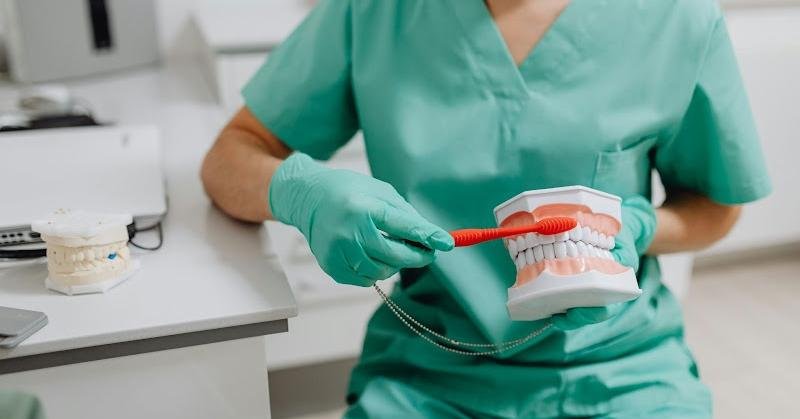Maintaining a clean and fresh mouth throughout the day is essential for both comfort and confidence. Proper oral hygiene not only helps in controlling the formation of bad breath but also avoids tooth decay and gum problems. Maintaining perfect oral hygiene, which means having a clean mouth all the time, is not just limited to only the use of the toothbrush. Practicing these elements and using respective tools in one’s daily schedule can greatly aid in maintaining good oral health. From effective brushing techniques to the role of specialized tools, understanding how to maintain oral health throughout the day is crucial for lasting freshness and well-being.
Consistent Brushing: The Foundation of Oral Hygiene
Tooth brushing is the foundation of oral hygiene. Ideally, you should brush twice a day, first in the morning and the second before going to bed. A fluoride toothpaste assists in cleaning food residues, plaques, and bacteria, which are responsible for tooth decay and gum diseases. It is recommended to brush teeth with short, several strokes, with the head of the toothbrush placed at a 45-degree angle with the gum line. This approach guarantees that the bristles are placed between teeth and alongside the gum. For those with busy schedules, keeping a travel-sized toothbrush and toothpaste handy ensures that brushing is not overlooked. Brushing removes most of the plaque and is useful for keeping the mouth clean for the rest of the day.
Flossing: Reaching Between Teeth
Flossing is also an important aspect of dental care since it entails cleaning tight spaces between the teeth that bristles cannot access. This habit also ensures that every part of the mouth is free of debris and the formation of plaque. As a result, cavities and gum diseases are common in interdental spaces. With dental floss or interdental brushes, run the floss in an up-and-down manner against the sides of the teeth. Flossing can cause gum damage; therefore, it should be done gently so that the gum tissue is not affected. For those who face difficulties in using the daily floss, there are options such as floss picks or a water flosser. It also guarantees that even the areas between the teeth are reached, hence keeping the mouth fresh all the time.
Mouthwash: Freshening Breath and Reducing Bacteria
Mouthwash effectively removes sources of germs and also tackles the build-up of plaque, and leaves the mouth with a fresh smell apart from the normal brushing and flossing. There are different forms of mouthwash available on the market; these include antibacterial, fluoride, and alcohol mouthwash. The mouthwash should be used after brushing and flossing in order to reach areas that these methods did not reach. Mouthwash should be gargled for about 30 seconds to a minute in order to cover the entire mouth. Mouthwash can also help wash the mouth and make it feel fresh, especially in the middle of the day when you are brushing or flossing.
Hydration: Keeping the Mouth Moist
Hydration is vital in the complexity of oral health and, hence, should be taken into account regularly. Saliva has the natural function of cleansing the mouth because it rinses out food and other debris. Regular intake of water during the day facilitates the production of saliva, which plays a key role in keeping the mouth clean. Water counteracts acids that are produced by bacteria within the mouth, thus limiting the chances of tooth decay. Those who drink coffee or alcohol, which can cause dry mouth, should increase their water intake to help reduce or overcome these effects. Staying hydrated supports overall mouth health and contributes to a consistently fresh feeling.
Using Specialized Tools: Enhancing Oral Care
One of the effective instruments in oral hygiene tools is the tongue scraper. A tongue scraper serves to clean bacteria, dead cells, and food residue that are usually found on the surface of the tongue that causes bad breath. A tongue scraper is normally used in the morning, and that consistently helps to ensure that these materials are cleared, which is good for general mouth cleanliness. Moreover, the use of electric toothbrushes with timers and pressure sensors will enhance the efficiency of brushing. These tools are normally superior to manual brushing in as much as they may offer a better clean than brushing. Using high-quality oral care tools can greatly contribute to the general state of personal oral hygiene during the day.
Conclusion
Maintaining a clean mouth throughout the day requires a comprehensive approach that includes proper brushing, flossing, mouthwash use, hydration, and specialized tools like a tongue scraper. All of these practices have the precise purpose of maintaining proper oral hygiene and avoiding bad breath and other dental problems. By incorporating these strategies into your daily routine, you can achieve and maintain a consistently fresh and healthy mouth, enhancing both your comfort and confidence throughout the day.










